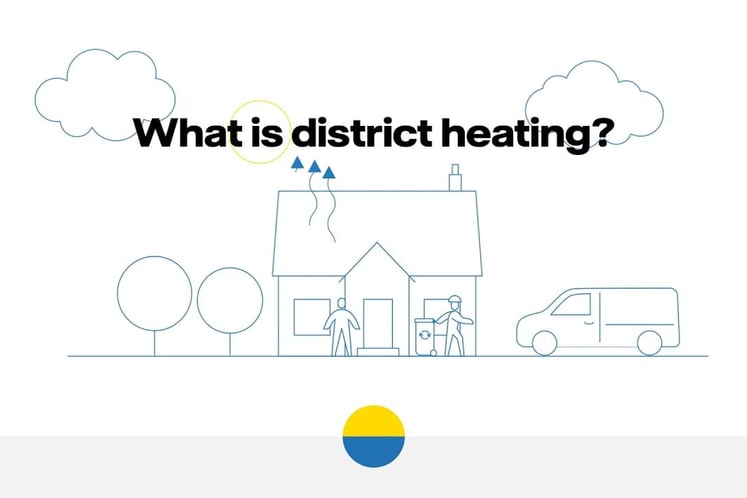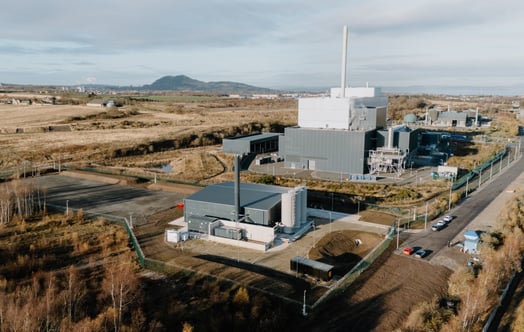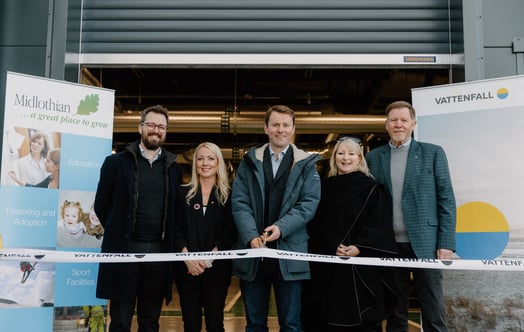To reach net zero by 2050, as the quickest and most affordable way to reduce emissions, carbon efficiency must be a critical focus writes Helen Murphy, Sustainability Manager for Cory Riverside Energy.
UK ambition on the road to net zero
Ahead of COP26 in November, Cory Riverside Energy joined 76 businesses in writing to the Prime Minister calling for an ambitious Nationally Determined Contribution (NDC) that is at least in line with the Paris Agreement, the UK’s net zero emissions by 2050 target, and advice from the Climate Change Committee on the UK’s 2030 target.
Cory believes that an ambitious NDC can support the UK’s green recovery efforts, helping deliver significant job creation and growth opportunities. Clear policy can encourage investment in technologies, such as carbon capture and storage, and resource efficient business models that are essential for a competitive, zero emissions UK economy.
To reach net zero by 2050, as the quickest and most affordable way to reduce emissions, carbon efficiency must be a critical focus.
Waste prevention and the carbon benefit of Energy from waste
Today many stakeholders, including the recycling and waste management industry, are working to build a more circular UK economy by focusing on waste prevention and encouraging the development of products that are designed to be used for longer, to be repaired and reused. As a society we must strive to reduce the amount of waste material being produced by minimising the amount of single use material and ensuring that material is recycled to prolong its useful life.
However, there are some materials that cannot be further reused or recycled and have reached the end of their useful life in terms of the carbon cost of reuse. When waste material inevitably falls out of the cycle of reuse, Energy from waste (EfW) provides the lowest carbon solution for managing this waste. Waste management is the primary function of EfW, sanitising and eliminating waste to maintain a clean and healthy society; low carbon base load electrical generation and heat are important by-products of this process.
The carbon benefit of EfW is based on the emissions it avoids and offsets, including methane emissions (which is a greenhouse gas that is 84 times more potent than CO2 over a 20year lifespan) that would otherwise arise from landfill, displacing emissions from energy that would be generated by fossil fuel power stations , avoiding the need to the quarry virgin materials for aggregate that can be produced from the by-products of the EfW process (incinerator bottom ash (IBA) and air pollution control residue), and the avoidance of mining to make new metal, because of metals segregation in the pre-treatment of EfW waste and further metals recovered from the IBA.
Yet EfW can go even further – and it must. To generate electricity in an EfW plant, heat is purposefully released to the atmosphere, this cools the steam after the steam turbine, forcing more steam across the turbine as it cools. The simplest way to drive greater carbon efficiency of EfW facilities is to ensure that this heat is used, rather than released into the atmosphere. This additional efficiency directly translates into measurable carbon benefit due to offsetting higher carbon heat generation – the more waste heat is used, the lower the net carbon emissions. All modern EfW facilities in the UK are constructed as combined heat and power (CHP) ready, and there are already a good number of CHP EfW facilities in operation that recover a lot of the waste heat and put it to use. However, the UK is missing a huge carbon efficiency opportunity by not ensuring that the residual heat produced by EfW facilities provides low carbon heating to local homes and businesses through district heating networks.
Video player requires marketing cookies.
To view this content please click here to allow marketing cookies.
What is district heating?
How does district heating work? How can it help to reduce carbon emissions? District heating and heat networks can reduce our reliance on fossil fuels, clean up the air in our cities and support local economies.
Decarbonising heating
For the UK to reach net zero by 2050 heating will have to be decarbonised. Right now, the overwhelming majority of homes are not heated in a low carbon way, with 85% of homes in the UK heated with natural gas. To get to net zero in the domestic sector, gas boilers need to be replaced with something else, such as low carbon heat networks or heat pumps. This is a major change needed in every home in the UK at an unprecedented scale, with 28m homes in the country this equates to 1 million homes a year to 2050 replacing their gas boilers. The questions of affordability, and who will pay for this profound change, looms large.
Clearly, it will be much more challenging for heat to decarbonise than the electricity grid. Therefore, moving away from the electricity only EfW model, and maximising the carbon efficiency of EfW plants by ensuring that they supply residual heat to district heating networks, can accelerate achievement of the UK’s net zero ambitions.
This is not just a role for the EfW sector, but also requires local authorities and developers to recognise the opportunity to build a more circular UK economy via heat recovery offtakes. This requires whole systems thinking, with stakeholders across the public and private sectors recognising the opportunity to future proof new and existing housing developments and infrastructure by connecting to heat networks from local EfW facilities and then working together to make it a reality.
Cory and Vattenfall’s heat network
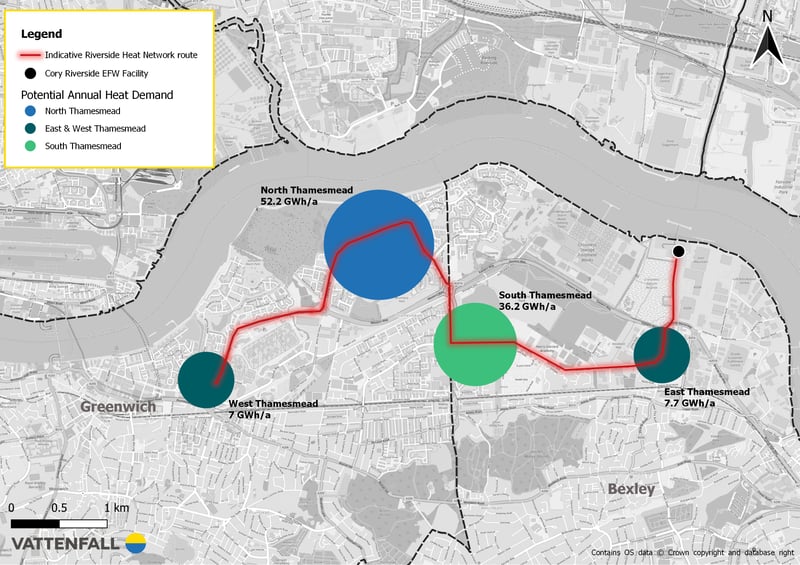
All this is why Cory and Vattenfall have partnered with the aim of delivering affordable, reliable and low carbon heat to communities in South East London. The project presents a watershed moment in London’s decarbonisation journey by transforming how a large part of the city is supplied with heat.
The Riverside Heat Network project aims to connect Cory’s Riverside Resource Recovery Facility (RRRF), one of the largest EfW facilities in the UK, with properties in the London Borough of Bexley and the Royal Borough of Greenwich. The RRRF has the capability to provide up to 28.6MW of heat, the equivalent of 10,000 home boilers and will form the base anchor load for the district heating network.
In addition, Cory’s recent attainment of a Development Consent Order for the Riverside Energy Park (REP), a Nationally Significant Infrastructure Project which includes a new EfW facility, located adjacent to RRRF, will be CHP enabled with the potential to provide a further 30MW heat offtake.
REP is scheduled for operation by 2025, and together with RRRF, the facilities will be able to supply c.25,000 local homes and businesses with sustainable heat with substantial spare capacity, making the heat network one of the largest in the UK.
The future for Energy from Waste
EfW is currently the lowest carbon means of disposing of residual waste, for the EfW sector continue to provide this essential role of waste disposal in a zero carbon future, the carbon efficiency needs to be high as possible by maximising the efficiency of facilities, particularly by ensuring heat recovery, continued efforts to minimise single use materials, ensuring that material remains in the cycle of reuse for as long as possible, and capturing carbon from EfW facilities will be essential.
Cory has been very excited by recent announcements related to carbon capture, usage, and storage (CCUS) projects at EfW facilities in the UK and moving forward will be engaging with our colleagues advancing in this space to see how technology and learnings could be applied to our operations in the future.
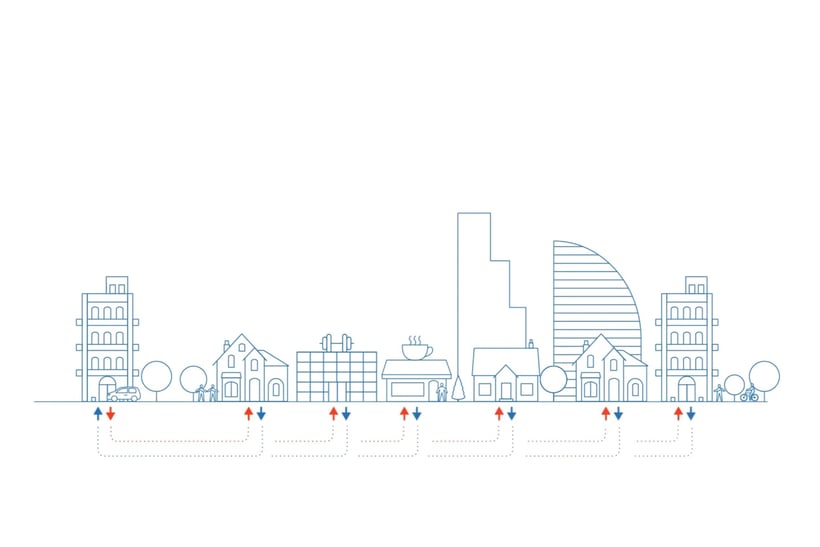
What's happening to deliver fossil free heating?
The UK's heating needs an upgrade. We explore why it's so important we act now to enable fossil free heating in the UK.


